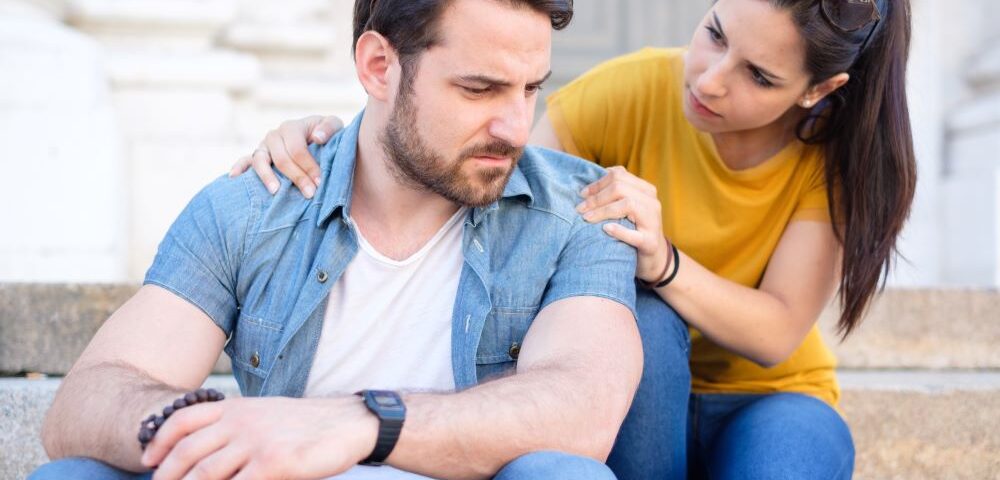
Personal Mantras: Enhancing Your Recovery in One Simple Step
September 16, 2020
“Is This a Crisis?”: Knowing Your Triggers and Warnings
September 24, 2020Many people experiencing trauma can feel lonely or isolated from their friends or family. They may feel as though those closest to them do not understand their pain. While our friends and family may have our best interests in mind while trying to help, they may not know what to say or how to relate.
While trauma does affect each person differently, many similarities occur that most sufferers of trauma can relate to. Sometimes, knowing that others have experienced similar emotions and feelings — as well as other hardships — can help us to feel less alone in our pain. In what ways does trauma commonly impact people’s lives?
Trouble with Relationships
Trust is a cornerstone of building healthy relationships. In order to build a relationship, you have to share personal information about yourself. You have to be vulnerable in sharing emotions and feelings. When you have a difficult time with trust, you may not feel comfortable sharing with others. You may worry they will use personal information to hurt you or judge you.
You may feel like they will use your emotions to belittle you or to manipulate you. Often, victims of trauma have a difficult time trusting others (in particular, victims of physical, emotional, or sexual abuse). Victims of trauma may worry that others will exploit them due to past events. A lack of trust can cause people to shut themselves off from building close relationships.
Self-Esteem Issues
Many people with a history of trauma struggle with their self-esteem. Traumatic events are so impactful because we may feel like we allowed bad things to happen to us. When we blame ourselves for our pain, we look down on ourselves. Traumatic events may have also made us feel used or worthless, as we might have been exploited for another’s benefit.
Remember that the events that caused your trauma are not your fault! Self-blame only leads to lower levels of confidence and self-esteem that hinder your recovery. Others who have experienced trauma may struggle with self-esteem issues, as well.
Aversion to Risk
Following a traumatic experience, our aversion to taking risks may become heightened. While some risks are best to avoid due to danger of harm, some risks are healthy and can lead to growth. For example, talking to someone about your trauma is a risk that can lead to healing.
Taking on a new hobby or activity can be risky because we may have to deal with failure as we build new skills. Breaking off a co-dependent and unhealthy relationship feels risky because we will have to venture into new territory and may feel alone.
Sometimes, trauma survivors avoid anything that may trigger past emotions or feelings of trauma. Life involves taking some low-level, calculated risks to grow and heal. Many of those experiencing trauma may fear change, as change is uncertain and risky.
They feel safer in the life they know because they are experts in surviving. Living, however, is about thriving — not just surviving. Learning to manage feelings of uncertainty can help you lead a richer and fuller life with trauma.
Lack of Knowledge on What Is Normal
Many victims of trauma have come from backgrounds that were disturbing or distressing. Unfortunately, if our trauma occurred early in life, we may have learned to accept these events as “normal.” After all, as children, we learn about normalcy from our home life.
If you were abused at home or lived with a neglectful family, you may have accepted this as being normal for everyone. Victims of early childhood trauma may not understand what normal and healthy behavior looks like. They may even feel uncomfortable when things are relatively calm, due to always feeling on-edge or on high alert.
They might feel calmer in a chaotic environment, because that is what they are used to. Individuals suffering from childhood trauma that stems from their home environment might not know what “normal” looks and feels like. By connecting with others and talking about our trauma, we can begin to understand how to build healthy lifestyles and homes.
Peer Support
Sometimes, just knowing that others have experienced similar pains can help us to feel a little better. Knowing that we are not alone can help us to feel less helpless in our recovery from trauma. Remember that you are not alone and other people are out there to help you recover! While your trauma story is unique and may have impacted you differently than others, most people with trauma can relate to your struggles in some way.
Trauma impacts everyone to varying degrees. Some people may experience a certain event and cope well, while others can experience the same event with lifelong impacts. Everyone has their own unique strengths that help them deal with the unexpected troubles that occur in life. Victims of trauma tend to be resilient survivors of hardships and abuse. They may have endured years of abuse or put their lives on the line as a first responder. If you are a survivor of traumatic experiences, you are strong! You can heal from this pain. The Kimberly Center helps people like you to find a fulfilling life following the effects of traumatic events. We offer a unique approach to treating trauma and can connect you with others who understand some of the things you have been going through. Call us today at (855) 452-3683 and begin your recovery and healing process!




